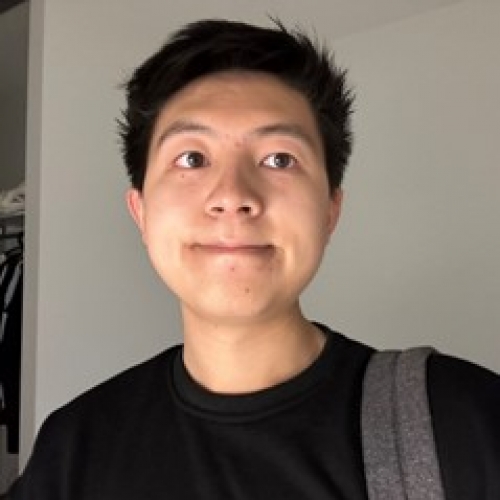
Shutian Xiao
The University of Melbourne
Hi, I’m Shutian. I’m currently diving deep into the world of Mathematics and Statistics at the University of Melbourne, pursuing my Master’s degree. My journey in mathematics began at Fudan University, where I earned my Bachelor’s in Applied Mathematics. I’m passionate about applying my analytical skills to real-world challenges. Currently, I’m under the supervision of Dr Pavel Krupskiy, developing a dynamic factor copulas model to analyze the complex dependence structure of high-frequency spot price time series data from the Australian National Electricity Market. This project combines my interests in statistical modeling, data analysis, and real-world applications of mathematics.
1. Give me a quick overview of the type of mathematics you were studying, and/or the aims of your research and its potential applications/outcomes (how would you explain your work and studies to friends who don’t study maths?)
I am researching in modeling dependence using factor copulas. Dependence can be seen everywhere in the world, from different financial return time series, to medical outcome under different situations. Copulas has been such a tool that widely adopted by researchers to fully depict these dependence relations. But in high dimension case, people need to address the computational issues. Factor copulas provide an opportunity to use fewer parameters to provide better performances.
The main point of my work is to make it easier to handle lots of connections at once. Instead of dealing with thousands of separate links, we can simplify it. This makes the math faster and more practical to use. And why does this matter? Well, it could help make better predictions in finance, give us more accurate weather forecasts, or even help doctors choose the best treatments for patients.
2. How did you get into the mathematical sciences? Was there someone or something that inspired you to this field?
A lot of factors led me into the math. One of these is simply that, math is pure and in most of time, it is well-defined. You can induce infinity conclusions based on some very clear and simple corner-stones. That is kind of art to me. When I do math, it’s like a harmony and I simply feel happy about it.
3. Winter School is designed to give students a deeper understanding of their area of research and expose them to others working in different fields/industries. Tell me about your Winter School experience. What was the most valuable part of the program for you?
I would say winter school provides a valuable memory to me. This is a different experience from daily life in uni, where everyone mostly focuses on their own study. During winter school, I met a lot of peers who study math as well, and have an opportunity to spend two weeks with them, and work closely with them. I can freely talk about my research interest and hear from others, which let me know some areas I don’t understand before, especially from the mouth of students who are currently carrying research in. It’s a different experience where I learn from textbook myself.
4. What was your main take away/s from AMSI Winter School? Something you learnt? A connection you made? Do you have new ideas for your work/research or see it in a new light?
Yes! For lectures, I really love the lectures of Financial Data Analytics by Philip Yam and Reinforcement Learning by Nan Ye. I use Notion to make notes of these lectures and ready to review it in the future. For connections, I connected with Mr Aaron Smith from CleanCo Queensland in the first week’s career event, who inspired my interest in Australia electricity market trading career.
5. You received a grant to attend AMSI Winter School. How important was this in terms of your ability to attend, fully participate in the program and meet others studying in similar fields?
First of all, thanks for providing the grants! As a international student, the recent high inflation cause a lot of pressure to my daily life. Without those grant, I might free stressed to attend Queensland in person and meet with all the the peers and professionals.
6. What advice would you give to someone who is considering applying for Winter School? How would you describe the conference to them?
My advice is getting yourself familiar with the class material before taking the lectures. Just as what you will do in your previous coursework. And making good use of the chance to ask questions and present your research work in front of everyone. That will help you to make some really valuable connections.
7. Where do you want the mathematical sciences to take you? Where do you see yourself in five, ten years time?
I am not sure about five or ten years. Maybe I will be a PhD student or I will dive into one industry I am interested in. I am open to all options that I can make some difference using my math skills.
8. Any other feedback/comments you would like to provide on the travel grant or AMSI Winter School?
Thanks again!

